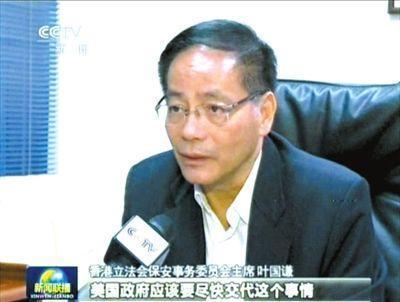'HK laws apply to Snowden case'
Hong Kong Chief Executive Leung Chun-ying said the Edward Snowden case will be handled according to local laws, a move observers said requires due respect for sovereignty of jurisdiction.
 |
|
Hong Kong Chief Executive Leung Chun-ying |
Despite the sensitivity of the case, Washington was not expected to take any irregular steps and strain its relationship with Beijing, analysts said.
For the first time, Leung publicly made a specific reference to Snowden on Saturday night.
"When the relevant mechanism is activated, the Hong Kong SAR Government will handle the case of Snowden in accordance with the laws and established procedures of Hong Kong," he said in a statement.
About half of Hong Kong residents were against surrendering the PRISM whistle-blower Snowden to the United States, according to an opinion poll commissioned by the Sunday Morning Post.
According to the poll, 49.9 percent of the 509 respondents were "against" or "strongly against" the government complying with an extradition request from Washington. Only 17.6 percent said Snowden should be handed over.
Shi Yinhong, an international relations professor at Renmin University of China, said the Hong Kong chief is sending a signal that respect should be paid to jurisdiction sovereignty when Washington is solving the sensitive and complicated case. As for the legal case, "Washington is not expected to do whatever it wants without necessary communication with Beijing on legal procedures", he said.
Beijing has shown prudence regarding the case, and it may be resolved in an appropriate manner, Shi said.
Snowden said on Wednesday that the Chinese University of Hong Kong and "public officials" in Hong Kong had been previously hacked under the US surveillance program.
Leung's statement also signaled the possibility of a serious probe into Snowden's claim. "Meanwhile, the government will follow up on any incidents related to the privacy or other rights of the institutions or people in Hong Kong being violated," it said.
According to local laws, the surveillance conducted by law enforcement officers in Hong Kong requires a court order to proceed, although no specific penalties have been outlined.
While Snowden's position remains unclear, it was almost certain that the United States will ask Hong Kong to send Snowden back for a trial. An extradition trial in Hong Kong has become inevitable.
Su Hao, a professor at China Foreign Affairs University, said although it seems justified for Washington to request the whistle-blower be handed over, the United States is expected to "follow the rules" and established legal frameworks with the Chinese side to resolve the issue.
"No substantial legal procedure for extradition can be initiated until the US side makes a clear definition of the whistle-blower," Su said.

